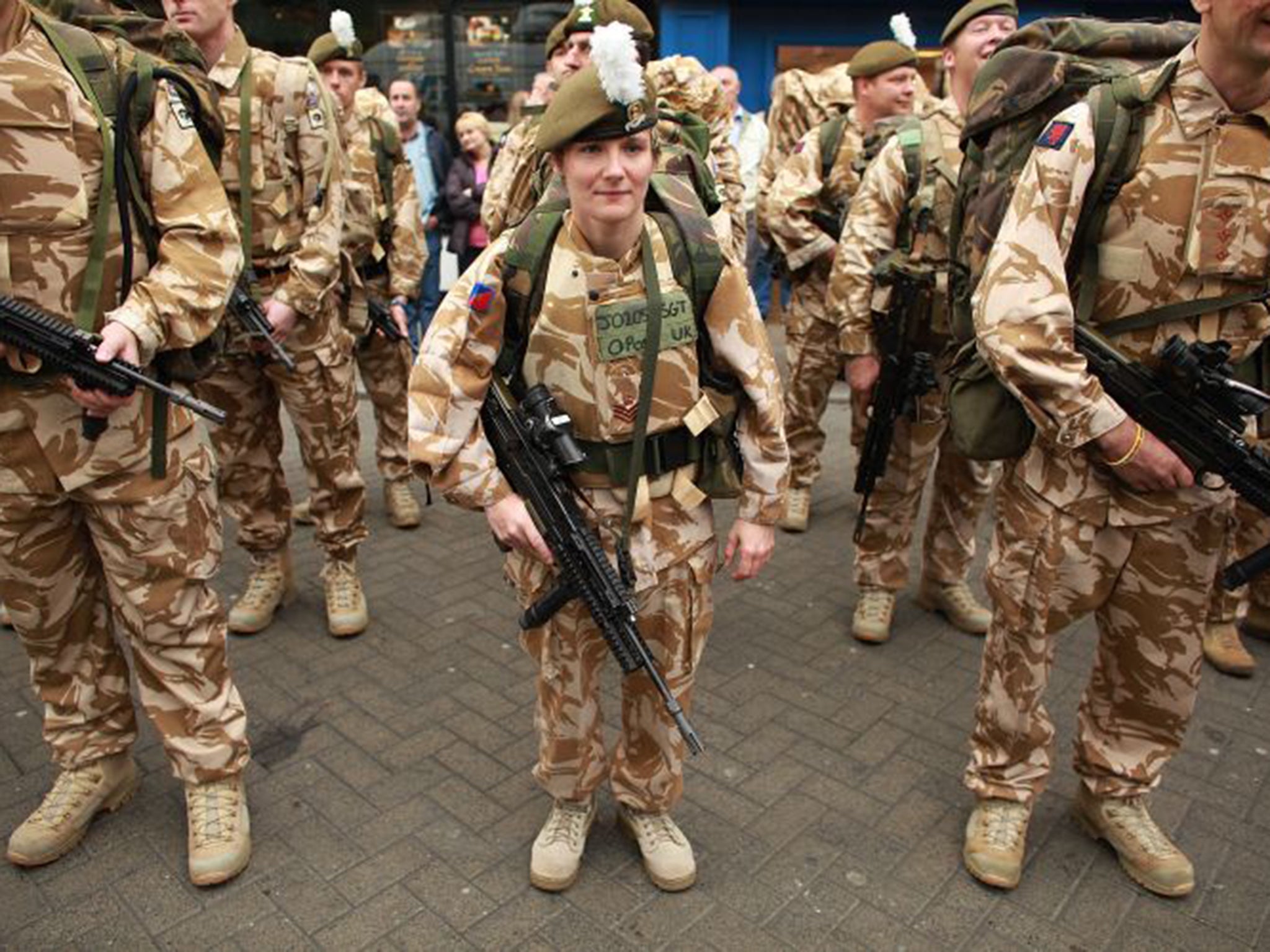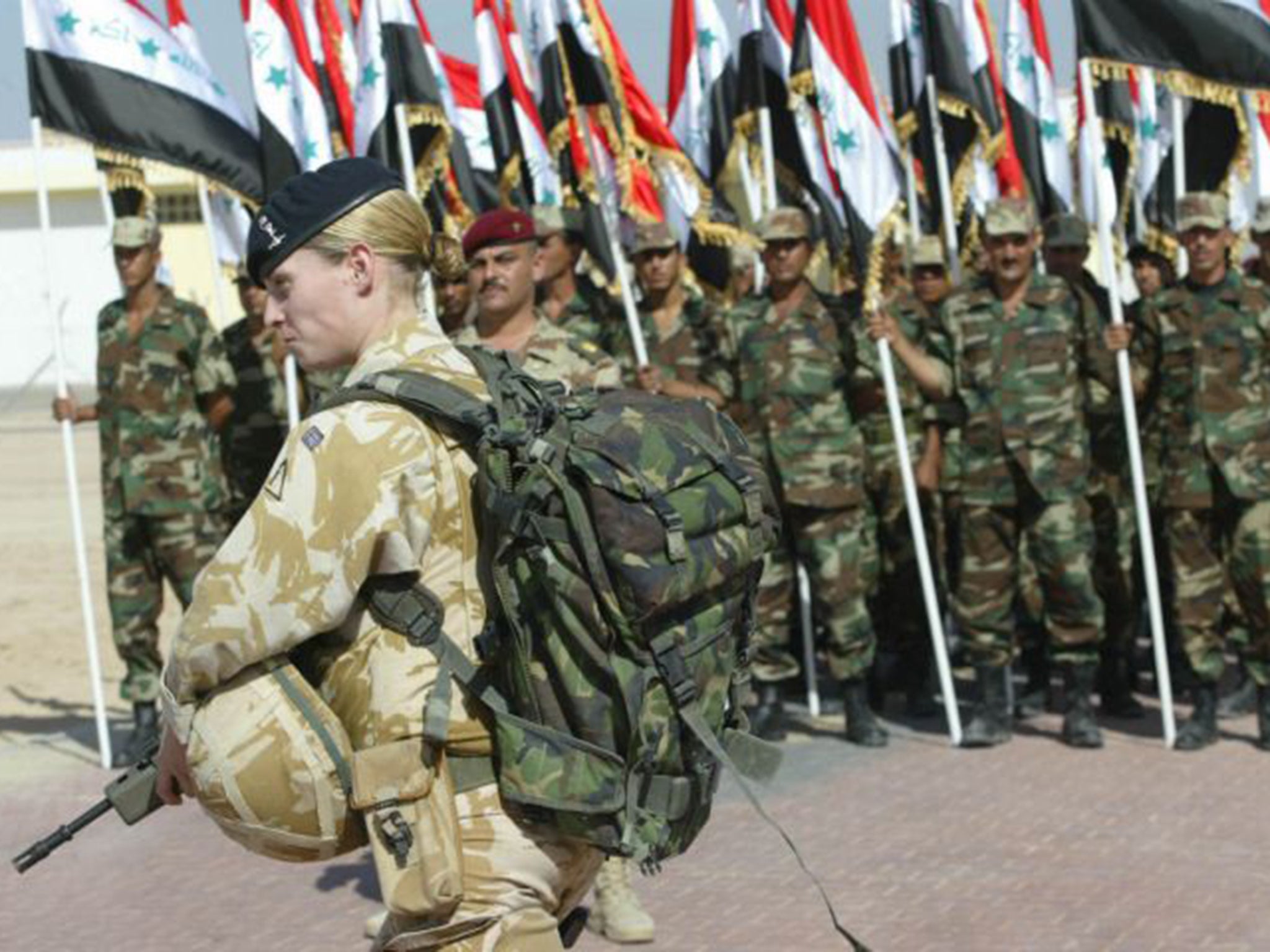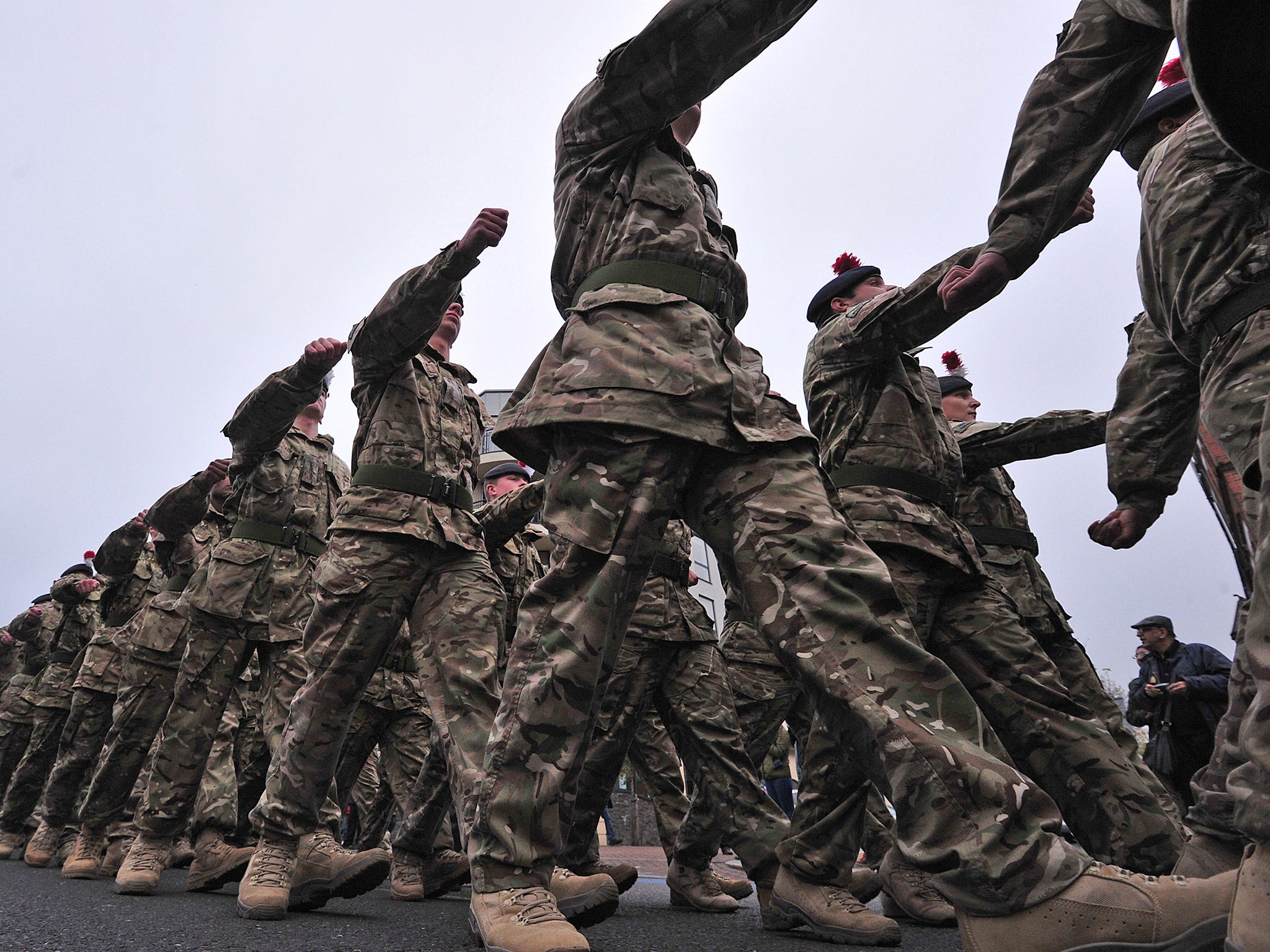Military's 'brass ceiling' to melt as women take command
Experts report that defence cuts are shifting the gender balance in the armed forces hierarchy

Your support helps us to tell the story
From reproductive rights to climate change to Big Tech, The Independent is on the ground when the story is developing. Whether it's investigating the financials of Elon Musk's pro-Trump PAC or producing our latest documentary, 'The A Word', which shines a light on the American women fighting for reproductive rights, we know how important it is to parse out the facts from the messaging.
At such a critical moment in US history, we need reporters on the ground. Your donation allows us to keep sending journalists to speak to both sides of the story.
The Independent is trusted by Americans across the entire political spectrum. And unlike many other quality news outlets, we choose not to lock Americans out of our reporting and analysis with paywalls. We believe quality journalism should be available to everyone, paid for by those who can afford it.
Your support makes all the difference.Women are set to smash through the military’s “brass ceiling” as their “lack of testosterone” helps to make them better commanders on the modern battlefield, it will be claimed this week.
Of the UK’s 160,000-strong armed forces, just 10 per cent are women. And, according to research by the BBC in 2012, they made up only 1.3 per cent of the senior officers – compared with 7 per cent in the US.
However, speaking ahead of an event entitled “Gender and Leadership: How should women lead in defence?”, to be held on Tuesday at the Royal United Services Institute (Rusi), experts predicted women would increasingly become part of the military’s command structure.
Professor John Louth, the think-tank’s director for defence, industries and society, who will chair the discussions, said he expected the gender balance in the military would gradually improve over the next 10 years.

“And that isn’t going to be by benevolent action, it’s going to be by necessity, because the complexities that we have in defence are going to mean that the traditional big chap mastering commander skills we think of as leadership are just going to fall away,” he said. “We’ll need people who can really manage complex programmes and projects and that’s absolutely gender neutral.”
He said cuts to the defence budget, which fell by about £500m this year, would result in the best people being promoted, regardless of gender.
“I think there’ll be an element of ‘well, the money’s run out, we’ve got to start thinking now’. And that becomes a great lever for change,” said Professor Louth. “When we have to do things we’ve not traditionally done, suddenly [you’ll find] women in a whole range of roles that they weren’t in before.
“I suspect as soon as we tinker on how much money we’re putting into a system like defence, that’s when we start really thinking about how to get the best from it. That means we have to use the best people and, almost by nature, we’ll see more women in senior roles than men.”
Madeleine Moon, Labour MP for Bridgend, who sits on the Defence Select Committee, said women had shown they can be capable commanders. “Women have risen through the ranks and all the old fears and anxieties about women in the armed forces have proved absolutely nonsensical,” she said.

“I think women do leadership particularly well because they take people with them. They often cut through all the nonsense and see ‘what are the main priorities here, what are the important things to come out of the decision I’ve got to make’. I think they bring a total lack of testosterone to the decisions that have to be made.”
Elaine West is the most senior woman in the armed forces after she was appointed Air Vice-Marshal, a two-star rank, in 2013 at the age of 51. Brigadier Nicky Moffat held a one-star role in the Army before resigning in 2012; and Captain Carolyn Stait was promoted to the rank of Commodore in the Royal Navy in 2004, also a one-star role.
Yet an “insidious everyday gender culture” remains a barrier for women in the armed forces, said Dr Victoria Basham, of Exeter University.
Dr Basham said lifting the ban on women in close combat in 2016 would be an important step. “There also needs to be a firmer commitment to transforming the culture of the armed forces and making women less of an exception to the norm,” she said.
Joanne Mackowski, a researcher at Rusi, referred to the “brass ceiling” in defence as an “unspoken truth” that must be acknowledged before “we could take that next step and … get [more women] into more senior ranks”.
A Ministry of Defence spokesperson said: “It is our long-term aim to reflect the society we serve, and targeted recruitment activity has sought to increase the number of women in the armed forces. Across defence this work should see more women coming through to senior positions in the future.”
Join our commenting forum
Join thought-provoking conversations, follow other Independent readers and see their replies
Comments